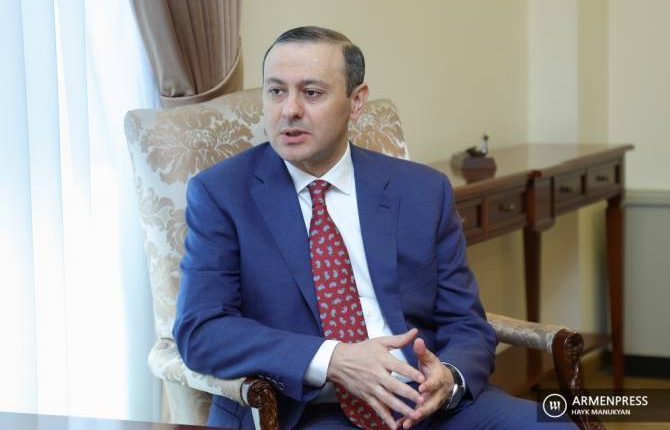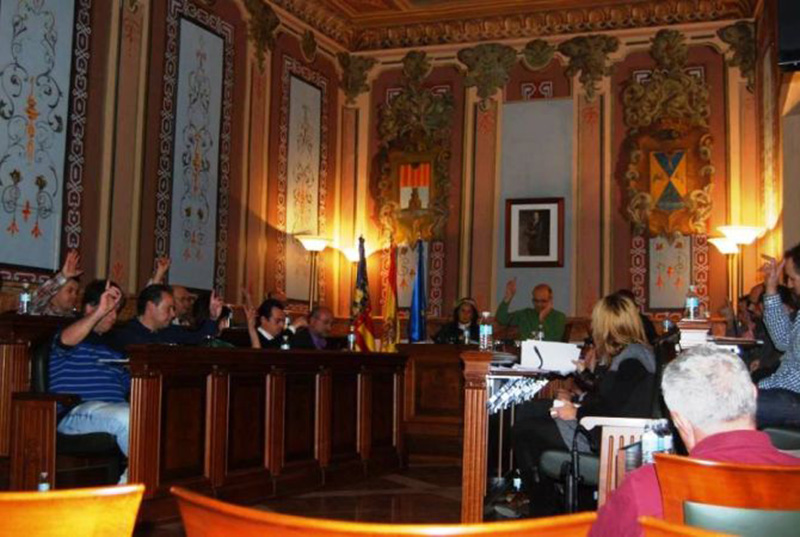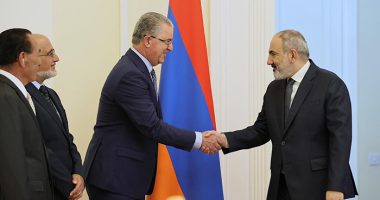YEREVAN — Armenia and Azerbaijan are planning to sign a bilateral peace treaty and delimit their border before the end of this year, according to Armen Grigoryan, the secretary of Armenia’s Security Council
Grigoryan said late on Wednesday that the two sides reached such understandings during high-level peace talks that followed last month’s large-scale fighting on the Armenian-Azerbaijani border.
The United States and the European Union brought together the leaders of the two South Caucasus arch-foes, their foreign ministers and other senior officials.
This included a September 27 meeting between Grigoryan and Azerbaijani President Ilham Aliyev’s chief foreign policy aide hosted by U.S. National Security Adviser Jake Sullivan in Washington. Sullivan said after the meeting that its participants “identified concrete steps forward in support of a stable and lasting peace.”
“The delimitation and the peace treaty are interconnected,” Grigoryan said in an interview on Public TV. “I’ll tell you why this is the case. Armenia remains concerned that after the peace treaty Azerbaijan could use the non-delimited border as an excuse for attacking Armenia again.”
Yerevan insists on Azerbaijani recognition of Armenia’s internationally recognized borders, he said. For its part, Armenia will recognize Azerbaijan’s territorial integrity, added the official.
“By and large, the border between Armenia and Azerbaijan was delimited back in 1929 (when they were Soviet republics). Armenia, Azerbaijan and Georgia had gone through this process. It remains to come to a joint agreement now that we (Armenia and Azerbaijan) accept that as a basis, to guarantee 29,800 square kilometers of Armenia and move forward,” Grigoryan said.
Grigoryan also confirmed that the treaty will make no reference to Nagorno-Karabakh. PM Pashinyan has said in this regard that it will be up to Baku and the Karabakh Armenians to negotiate on the territory’s status. Aliyev has repeatedly ruled out agreeing to any such status.
He described the Armenian opposition’s accusations that the authorities’ desire for a dialogue between Artsakh (Nagorno-Karabakh) and Azerbaijan is an attempt by Armenia to “wash its hands” false.
“We have discussed this issue many times with Stepanakert, and I think this is the best way to find solutions,” Grigoryan said, adding that international mechanisms and guarantees are needed on this issue.
“The peace treaty process between Armenia and Azerbaijan is one thing, creating international security guarantees for Karabakh is another,” Grigoryan said.
The Security Council Secretary also commented on the Turkish Foreign Minister’s statement that Armenia and Azerbaijan had come to an agreement on five points, that the problem is in their implementation and that Armenian-Turkish relations depend on the conclusion of that agreement.










